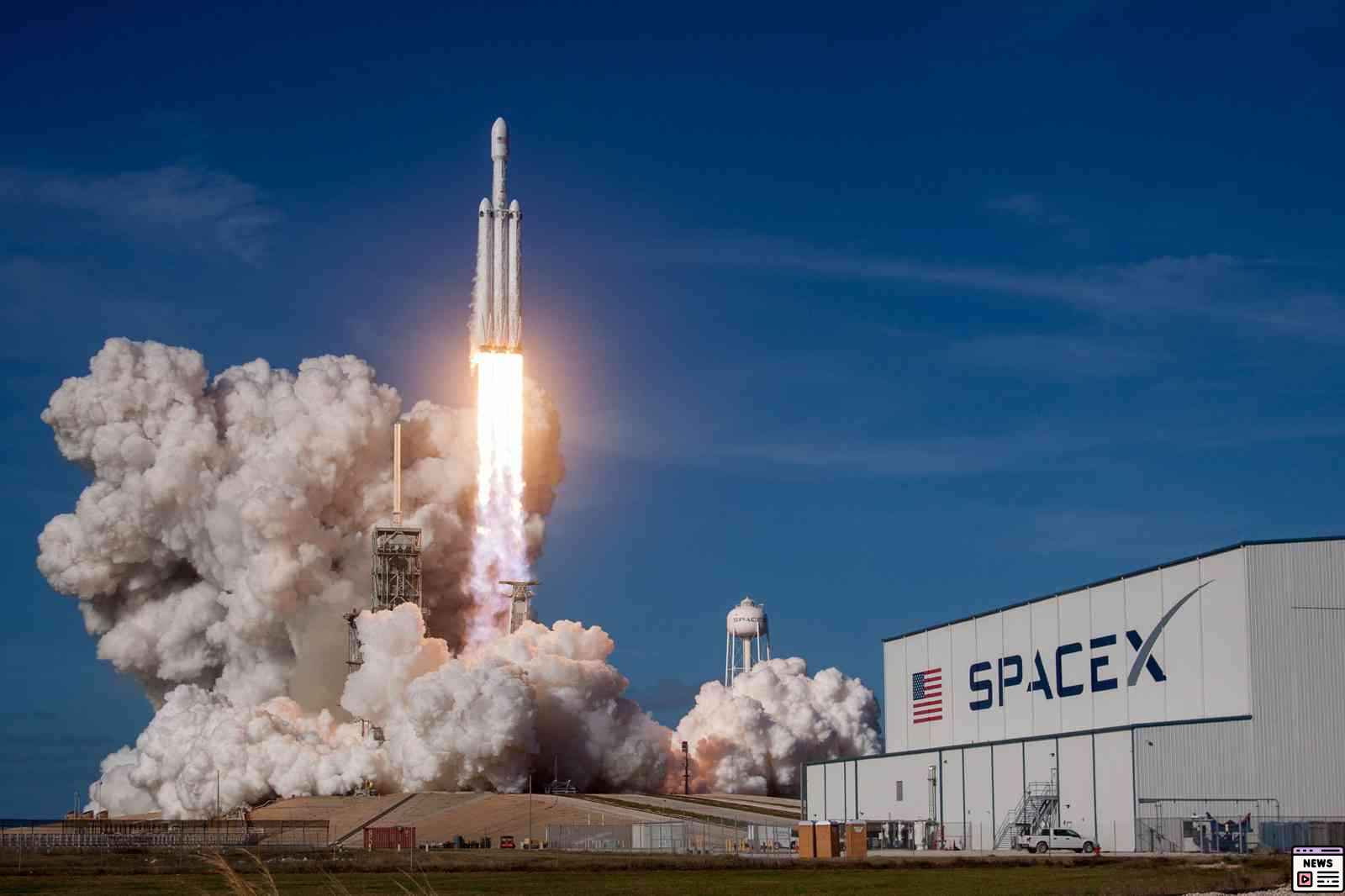Updated on: October 10, 2024 12:59 pm GMT
SpaceX’s Polaris Dawn Mission to Undertake Historic First Private Spacewalk
In a groundbreaking event for commercial space exploration, SpaceX will attempt the first-ever private spacewalk, also known as an extravehicular activity (EVA), on September 12, 2024. This historic venture involves two amateur astronauts, Jared Isaacman and Sarah Gillis, who will step into the vacuum of space from the SpaceX Dragon capsule at an altitude of over 400 miles. The mission marks a pivotal moment in space travel, as it will be the first time non-professional astronauts conduct a spacewalk without the usual safety measures.
Breaking New Ground in Space Exploration
The Mission Overview
The Polaris Dawn mission, which launched on September 10 aboard a SpaceX Falcon 9 rocket, is led by billionaire entrepreneur Jared Isaacman. The crew consists of three SpaceX employees and a former military pilot, all on a five-day mission that takes them farther from Earth than any crewed mission since the Apollo program. This private expedition aims to explore new frontiers in space and conduct the EVA from a modified Crew Dragon capsule designed for this unique purpose.
Why the Spacewalk is Significant
- This EVA is not only the first by private civilian astronauts, but also raises critical questions about safety and regulation in commercial space travel.
- It serves as a test for SpaceX’s newly developed, slimmer spacesuits, designed for improved mobility and insulation against extreme temperatures.
- The mission reflects SpaceX’s ambition to push beyond the boundaries set by government-led space programs.
The Challenges Ahead
A spacewalk is known to be one of the most perilous activities for astronauts. Historically, astronauts have conducted spacewalks under the scrutiny of agencies like NASA, which impose strict safety regulations. For Polaris Dawn, however, there are no such oversight measures in place.
Operational Adjustments
To carry out the spacewalk, the Crew Dragon capsule has undergone significant modifications, including equipment changes that allow for depressurization. Both astronauts will be tethered to the spacecraft by umbilical cords, ensuring they maintain life support while outside.
Addressing Safety and Legal Concerns
Regulatory Oversight in Private Space Missions
The absence of federal regulations governing private space missions like Polaris Dawn raises alarms about astronaut safety. The Federal Aviation Administration (FAA) has limited authority to issue regulations concerning commercial human spaceflight, allowing only certification of the rockets and spacecraft without direct oversight of operational safety.
The Outer Space Treaty Implications
The Outer Space Treaty of 1967 stipulates that all signatory nations must supervise private space activities, yet Polaris Dawn’s mission raises complex questions about adherence to these international agreements. Experts worry this could signal a shift toward less government regulation over commercial space ventures, potentially compromising safety.
Preparations and Training for the EVA
Training Regimen
The Polaris Dawn crew has trained intensively for this mission, with preparations spanning more than two years. The challenge is unique: unlike typical astronauts who practice spacewalks in large pools to mimic zero gravity, the team improvises by using ropes and pulleys.
Mitigating Risks
Decompression sickness is a significant risk during a spacewalk. To reduce the likelihood of this issue, astronauts will spend a significant time venting gases from their bodies and cabin before the EVA.
The Spacewalk: What to Expect
Live Coverage and Details
The spacewalk is scheduled to begin at 5:58 a.m. ET on September 12, expected to last about two hours. Live coverage will be available for those wishing to witness this extraordinary milestone in commercial space exploration.
Tasks Planned for the EVA
- Testing the functionality and mobility of the new SpaceX spacesuit.
- Conducting initial experiments to prepare for future missions, including those aimed at Mars.
Looking Ahead: The Future of Private Space Exploration
As SpaceX reaches for the stars with missions like Polaris Dawn, it remains clear that we are stepping into a new era of space travel. The implications extend beyond technical achievements to fundamental questions about the role of private enterprises in a domain long dominated by national agencies.
Growing Interest in Private Space Ventures
In recent months, interest in private space exploration has surged, with companies like Blue Origin and Virgin Galactic offering opportunities for space tourism. This increasing trend underscores the desire for more involvement from private citizens in space endeavors, as well as the pursuit of research and exploration beyond Earth.
Upcoming Private Missions
- Blue Origin plans to launch citizen astronauts for short suborbital flights.
- Virgin Galactic is gearing up for its next crewed missions targeting space tourism.
The Unknowns of Space Exploration
As the Polaris Dawn mission approaches its pivotal spacewalk, questions about safety, regulation, and the evolving nature of space law persist. While many view this as a remarkable achievement, it serves as a reminder of the responsibilities that accompany this new frontier.
Conclusion: A Call for Responsible Exploration
The Polaris Dawn mission is a really exciting project! It wants to do something amazing in space while also changing the rules about how we explore it. With more private companies getting involved in space travel, it’s important to have rules and agreements between countries. This will help make sure that our adventures in space are safe and responsible as we explore beyond Earth.
